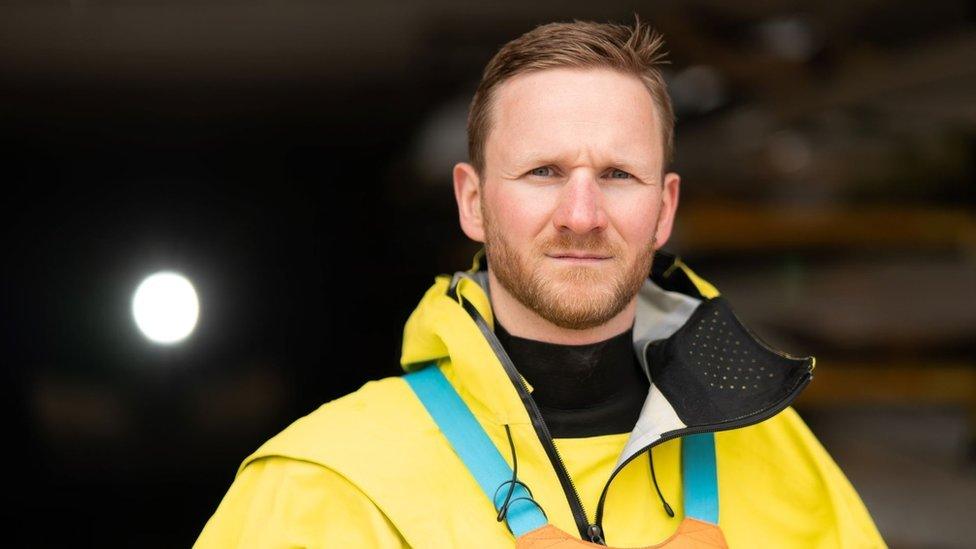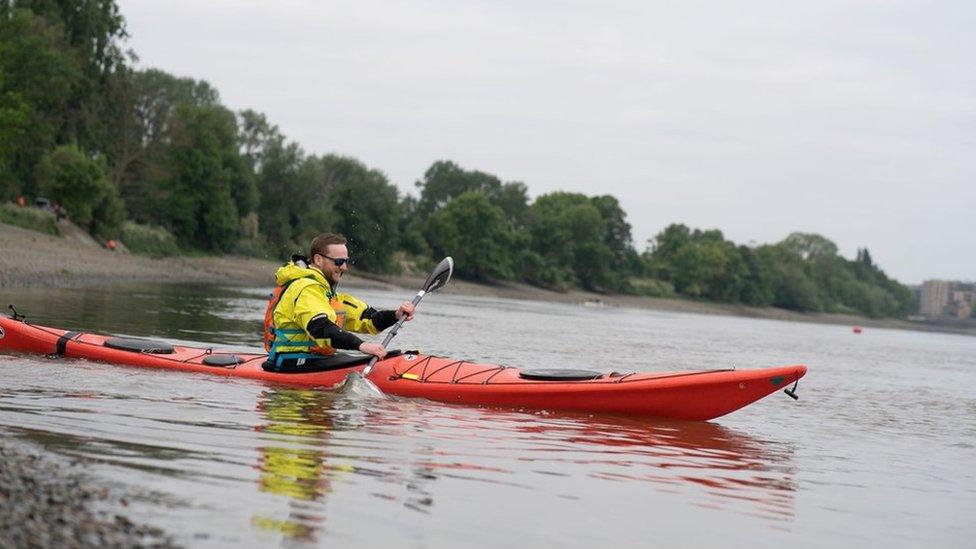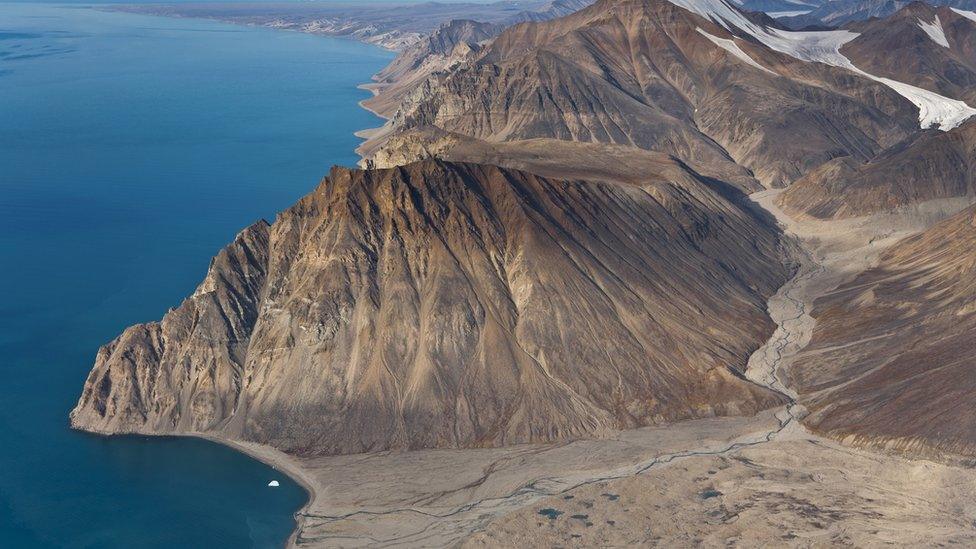Edinburgh adventurer attempts 2,000 mile Arctic kayak voyage
- Published

Mark Agnew will embark on the 2,000 mile journey in July
A man who twice failed to row the Atlantic is hoping to become one of the first people to kayak the Arctic's Northwest Passage.
Mark Agnew is one of a team of four who will embark on the 2,000 mile journey from Baffin Bay in Greenland to the Beaufort Sea in July.
He said kayaking helped him overcome a mental health crisis in 2018 after his failed Atlantic crossings.
The 32-year-old hopes to raise £25,000 for an outdoors education charity.
The route will follow that of Sir John Franklin's doomed voyage in 1845.
Both ships involved in that exploration became ice bound. Franklin and his crew of 129 men on HMS Erebus and HMS Terror perished.
"One hundred years ago the Northwest Passage would have been frozen almost all year-round, but now we are going to be able to kayak the 2,000 miles in a single season," Mark said.
"A rather devastating example of how much climate change has affected the planet."
Mark's team may even pass directly over the wreck of HMS Terror during the journey he described as "the 'voyage that shouldn't happen'".

Mark practised his kayaking for the expedition on the Thames and in East Lothian
The expedition team for his Arctic voyage will consist of Mark and three Americans - expedition leader West Hansen, Jeff Wueste and Eileen Visser.
They will set off from Bylot Island, Nunavut, Canada, and hope to finish 90 days later at Tuktoyaktuk, an Inuit hamlet in Canada.
Mark, who was brought up in Edinburgh, has been practising on the Thames. He has also been kayaking in Scotland, often around East Lothian's Bass Rock.
He first attempted to set a world record for rowing across the Atlantic in 2016, and again in 2018. He was rescued during both attempts.
It led to him suffering a mental health crisis, feeling worthless and unmotivated.

"I felt utterly worthless," he said. "I was overcome with feelings of humiliation and failure. It began to seep into every aspect of my life, and I became lethargic.
"I wasn't clinically depressed but the feeling of being pathetic became overwhelming. Eventually, I decided I needed to drag myself out of my hole by going on adventures again. I realised I had to focus on the experience and not the outcome.
After 12 months of feeling defeated, Mark gradually started to feel better.
"I began to focus on camaraderie, discovery of beautiful landscapes and being at one with nature and not just on the aspect of winning or of gaining the world record. That said, I'm still motivated by the world first.
Growing up in Edinburgh, Mark was immersed in the world of adventure from a young age.
His parents were both adventurers, with his father mapping part of Greenland and Patagonia, and his mother spending time travelling overland from Australia back to the UK.

Mark and his team will set off from Bylot Island
Mark moved to Hong Kong after graduating, later working as outdoor and extreme sports editor of the South China Morning Post.
Mark hopes to raise more £25,000 for Wilderness Foundation UK. The charity offers education and therapy programmes for young people and adults through outdoor facilitation adventures, therapy and mentoring.
Wilderness Foundation UK's CEO Jo Roberts, said: "As a charity we work with children, teens and adults whose fears hold them back from trying, failing and succeeding - and they get stuck.
"Mark will be setting them an example of what it looks like to give life 'a go' and we will be following his paddle strokes and courage as he braves one of the most challenging and magnificent passages."